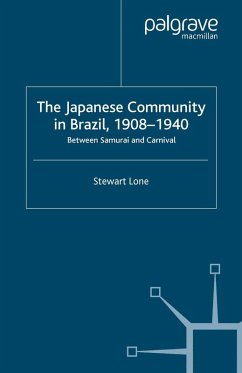
Jewish Immigrant Entrepreneurship in New York and London 1880-1914 (eBook, PDF)
Enterprise and Culture
Versandkostenfrei!
Sofort per Download lieferbar
72,95 €
inkl. MwSt.
Weitere Ausgaben:

PAYBACK Punkte
36 °P sammeln!
How successful were the East European Jewish immigrants in London compared with the vast majority that went to New York? This critical question - one that lies at the heart of debates on Jewish modernity, ethnic and racial assimilation, and the impact of culture on entrepreneurship - is assessed systematically for the first time in this volume. Using new evidence of Jewish immigration, mobility and assimilation, Andrew Godley shows that despite similar backgrounds and opportunities, the Jews in London were far less entrepreneurial and those in New York. As the Jewish immigrants assimilated eit...
How successful were the East European Jewish immigrants in London compared with the vast majority that went to New York? This critical question - one that lies at the heart of debates on Jewish modernity, ethnic and racial assimilation, and the impact of culture on entrepreneurship - is assessed systematically for the first time in this volume. Using new evidence of Jewish immigration, mobility and assimilation, Andrew Godley shows that despite similar backgrounds and opportunities, the Jews in London were far less entrepreneurial and those in New York. As the Jewish immigrants assimilated either American or British cultural values, those in New York moved en masse into self-employment, while those in London opted to remain as workers. Godley then reinterprets the broad thrust of British twentieth century economic history, emphasising how these long-standing anti-entrepreneurial and highly conservative craft cultural values among the English working classes acted as a drag on innovation, hampering industrial relations, investment and growth.
Dieser Download kann aus rechtlichen Gründen nur mit Rechnungsadresse in A, B, BG, CY, CZ, D, DK, EW, E, FIN, F, GR, HR, H, IRL, I, LT, L, LR, M, NL, PL, P, R, S, SLO, SK ausgeliefert werden.












